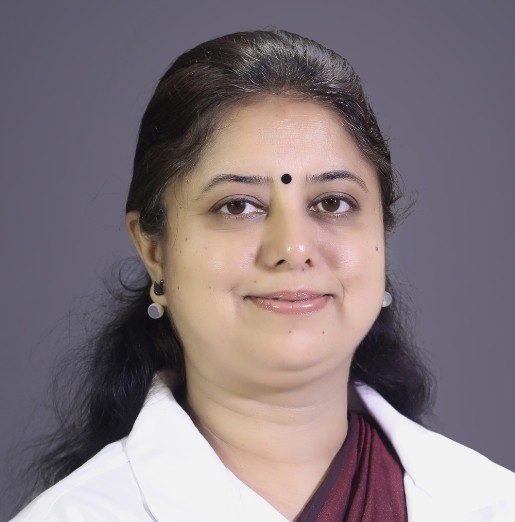The Diabetology and Endocrinology team at KIMS Hospitals in Electronic City focuses on helping patients manage diabetes and other endocrine disorders. They follow a well-rounded approach guiding both adults and kids to take charge of their health. The department brings in specialists trained worldwide who work with patients.
At KIMS Hospitals, Electronic City, skilled endocrinologists study the relationship between diet and disease to promote healthier living. These doctors will treat endocrine issues affecting you and work with other specialists in areas like surgery, ophthalmology, oncology and organ transplantation. Because of this collaborative effort you will get comprehensive care depending on what you need.
Treatments and Procedures
The team offers expertise in various medical treatments and procedures:
1. Bariatric and Metabolic Surgeries
- Weight-loss surgery
- Gastric bypass using the Roux-en-Y method
- Duodenal switch paired with biliopancreatic diversion (BPD/DS)
- Sleeve gastrectomy
2. Endocrine-related Operations and Tests
- Adrenal gland removal surgery
- Invasive parathyroid removal (MIP)
- Thyroid gland removal
- Thyroid fine needle biopsy
3. Neurosurgical and Brain Methods
- Stereotactic radiosurgery for the brain
- Transsphenoidal surgery to reach the skull base through the nose
4. Diagnostic Imaging and Scans
- CT scans
- MRI scans
5. Transplant Surgeries and Organ-focused Interventions
- Pancreas transplantation
6. Endoscopic and Less Invasive Methods
- Your doctor performs these procedures through your nose using endoscopy
7. Handling Nutrition and Body Metabolism
- When you get an enteral feeding at home
- This involves controlling fat intake in your body
8. Recovery and Ongoing Care
- It involves taking care of surgical wounds
Health Issues We Address
Endocrinologists at KIMS Hospitals in Electronic City work on treating a wide range of hormone-related health problems. Many patients reach out to KIMS Hospitals in Electronic City to seek help with uncommon or tough-to-treat conditions. These experts work alongside other specialists as part of a team to ensure you get the right treatment.
The focus at KIMS Hospitals in Electronic City includes assisting with the following concerns:
1. Issues with the Pituitary Gland and Hypothalamus
- Acromegaly: A tumour in the pituitary gland triggers the body to produce too much growth hormone.
- Hypopituitarism: The pituitary gland fails to produce enough hormones.
- Prolactinoma: An innocent tumour in the pituitary causes a rise in prolactin levels.
- Sheehan's Syndrome: Severe blood loss during childbirth damages the pituitary gland's ability to function.
- POEMS Syndrome: A rare condition that leads to nerve problems, organ swelling, and hormone disorders.
2. Adrenal Gland Issues
- Addison's disease: The adrenal glands do not generate enough cortisol or aldosterone.
- Adrenal cancer: Cancer forms in the adrenal glands.
- Benign adrenal tumours: Noncancerous lumps appear on the adrenal glands without causing harm.
- Congenital adrenal hyperplasia: A genetic problem interrupts the adrenal glands’ ability to make hormones.
- Cushing syndrome: Increased cortisol levels cause problems like gaining weight or having weak skin.
- Primary aldosteronism: Excess aldosterone makes blood pressure go higher than normal.
- Pheochromocytoma: A rare tumour in the adrenal glands leads to sudden hormone increases and high blood pressure.
- Hyperkalemia (High potassium): Issues with the adrenal glands or kidneys can cause this.
- Hypokalemia (Low potassium): This links to adrenal tumours that make aldosterone.
- Adrenoleukodystrophy: This inherited disorder damages both the adrenal glands and the nervous system.
3. Troubles Linked to the Thyroid
- Hyperthyroidism: When your thyroid gland is secreting too many hormones, making it work very hard.
- Hypothyroidism: In this condition your thyroid is unable to produce an optimal amount of thyroid hormones.
- Thyroid nodules: Small lumps or growths form in the thyroid and are often harmless.
- Goitre: The thyroid grows larger because of a lack of iodine or thyroid-related issues.
- Graves' disease: The immune system triggers the thyroid to make hormones in excess.
- Hashimoto's disease: An autoimmune condition results in the thyroid lowering its hormone production.
- Thyroid cancer: Cancerous lumps can develop in the thyroid gland.
- Thyroid eye disease: Irritation or puffiness around the eyes connected to Graves' disease.
- Hurthle cell cancer: A rare form of thyroid cancer. Thyroid disorders cover every kind of issue involving the thyroid.
4. Pancreatic and Blood Sugar Problems
The pancreas gland helps control blood sugar levels in the body. If it doesn't make enough insulin or stops doing its job, blood sugar levels go up. High sugar levels can lead to diabetes, a condition that needs proper attention and care. A healthy pancreas is necessary to keep sugar levels steady. Knowing how this organ works with sugar in the body can help manage and prevent these issues.
- Type 1 Diabetes: An autoimmune illness destroys the insulin-making cells in the body.
- Type 2 Diabetes: This condition stops insulin from working so blood sugar levels stay elevated.
- Type 1 Diabetes in children: An autoimmune form of diabetes develops during childhood or teenage years.
- Type 2 Diabetes in children: A metabolic disorder is now appearing more in younger age groups.
- Prediabetes: Blood sugar remains higher than it should but not high enough to count as diabetes yet.
- Gestational diabetes: Diabetes occurs during pregnancy and fades afterwards.
- Hypoglycemia: Blood sugar gets too low, usually tied to insulin problems or hormone imbalances.
- Insulinoma: A growth in the pancreas releases insulin leading to low blood sugar.
5. Problems That Affect Gonads and Reproductive Health
- Male hypogonadism: Men have very low testosterone hormone levels.
- Male infertility: Men struggle to father kids due to poor-quality sperm or low sperm count in the semen.
- Female infertility: Women are unable to become pregnant or keep a pregnancy to full-term.
- Polycystic ovary syndrome (PCOS): Hormonal problems in women stop the ovaries from working.
- Hirsutism: Women grow too much body or facial hair because of hormone problems.
- Erectile dysfunction: Men cannot maintain or achieve an erection.
- Galactorrhea: Milk leaks from breasts with no connection to childbirth.
- Klinefelter Syndrome: A genetic problem causes males to have an extra X chromosome.
- Turner Syndrome: Females experience it when one X chromosome is missing.
- Varicocele: Veins in the scrotum become swollen, which may lower fertility.
- Gender Dysphoria: Feeling distress when gender identity does not match physical sex.
6. Problems in Your Bones
- Osteoporosis: In this condition there is a decrease in your bone mass. This makes your bones fragile and they are very susceptible to breaking.
- Osteopenia: Bone density drops below normal, which might lead to osteoporosis later.
- Osteomalacia: A lack of vitamin D causes bones to weaken and become soft.
- Osteopetrosis: Despite being dense, bones remain brittle and prone to breaking.
- Paget's disease of bone: Bones lose strength because the process of forming and breaking bone fails.
- Metabolic bone disease: Different issues disrupt the way bones develop or maintain strength.
- Hyperparathyroidism: Overactive glands affect calcium balance and harm bone health.
- Hypoparathyroidism: The parathyroid glands function less, which makes calcium levels fall.
- Hypercalcemia: Overactive parathyroid glands lead to high calcium in the bloodstream.
7. Lipid and Metabolism Issues
- Dyslipidemia: Blood contains unusual levels of cholesterol or fats.
- High cholesterol: Cholesterol increases in the blood and raises the risk of heart disease.
- Obesity: Excess fat in the body leads to a higher chance of chronic illnesses.
- Nonalcoholic fatty liver disease (NAFLD): Fat builds up in the liver without alcohol being the trigger.
- Nonalcoholic steatohepatitis (NASH): The liver is harmed by fat buildup and swelling, which can cause injury.
- Inherited metabolic disorders: Problems arise from genes disrupting how the body processes energy.
8. Kidney and Other Problems Related to It
- Chronic kidney disease (CKD): Your kidneys stop functioning as they used to function when they were normal
- Diabetic nephropathy: Diabetes over many years can harm the kidneys.
- End-stage renal disease (ESRD): Kidney failure becomes so severe that treatment like dialysis or a transplant is needed.
9. Cancer and Tumours
- Cancer: Cells start growing out of control anywhere in the body, which leads to abnormal growth.
- Carcinoid tumours: These are slow-growing growths in the gastrointestinal tract that affect neuroendocrine cells.
- Neuroendocrine tumours: These result from cells that create hormones and lead to unusual growths.
- Neuroblastoma: This cancer affects children, arising in nerve tissue, often around the adrenal glands.
- Multiple endocrine neoplasia type 1 (MEN1): Genetic changes cause tumours to develop in hormone-producing glands.
- Multiple endocrine neoplasia type 2 (MEN2): This inherited condition leads to medullary thyroid cancer and sometimes triggers other types of tumours too. Paget's disease of the breast is an uncommon type of breast cancer that affects the nipple and the skin around it (areola).
10. Genetic and Rare Conditions
- Whipple's disease: This uncommon bacterial infection interferes with how the body absorbs nutrients.
- Hypereosinophilic syndrome: The body makes too many eosinophils, which end up damaging organs.


